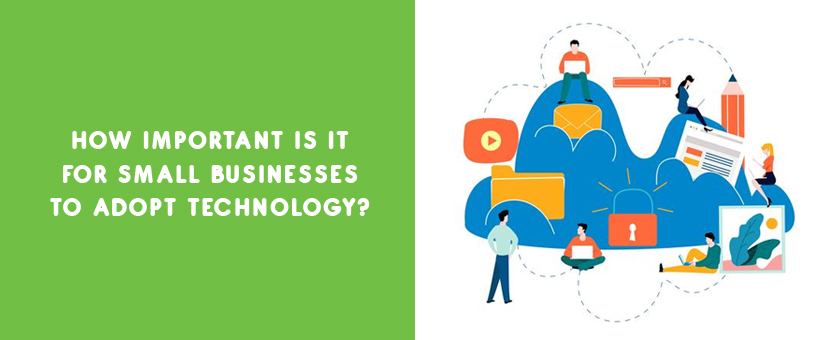The digital shift that has come about in the recent past has become an inevitable part of our lifestyle today. Nearly half of the global population is now online, with users spending an average of two hours a day on social media platforms alone. American users consume 7.2 GB of mobile data every month for different internet-related activities. This figure is expected to rise to 49 GB per smartphone by 2023. The rise has been even more astronomical in India, where 27% of the population had access to mobile internet connectivity in 2017, and by 2022, that figure is poised to rise to 60 percent. This projected figure accounts for 829 million smartphone users with access to the internet.
These domestic and global figures point to a common conclusion – this tech-driven, deeply digitalized world is our future. For businesses, irrespective of their size, operations, and industry, the writing is on the wall – they must embrace technology and shore up an online presence to survive in this dynamic landscape. Given that only 45% of all small businesses today invest in CRM systems, with a further only 8 percent having embraced AI, there is definitely a need for a greater push in this direction. Understanding how important it is for small businesses to adopt technology is a good starting point:
To Stay Relevant
In this highly competitive marketplace, customer experience is the driving force behind marketing, sales, and product pitches of most businesses today. This isn’t surprising, considering the forever growing choice of alternatives has made the average customer demanding and driven by a personalized experience at every step of a purchase process. Therefore, a clearly defined target audience and deep understanding of what that audience wants is the key to staying ahead of the curve.
Delivering these intimate experiences is next to impossible unless you leverage the capabilities of new technologies – be it artificial intelligence, big data, analytics, blockchain, etc. This is the very reason why a whole host of competitive businesses are actively overhauling operations to make way for these cutting-edge tech solutions. By missing out on this wave, you can quickly become irrelevant in the market, as your business no longer offers what your customers want.
To Compete with Big Market Players
Big market players, in any industry vertical, have endless resources, funds, and manpower that helps them maintain a hold on their market share, luxury small businesses can rarely afford to replicate. However, this elaborate setup and resource-pool also mean that big corporations have to contend with high corporation costs, elaborate processes, and administrative red-tape to bring about a technological shift in their operations.
Small businesses have an immense opportunity here to level the playing field by acting act swiftly to test out and embrace new technologies. Since the decision-making power is vested in the hands of a single individual or a close-knit group, small businesses can quickly jump on the tech innovation bandwagon, test existing solutions, or even develop their own from scratch. A tech-forward small business can, therefore, contend with big, established market players even with limited fiscal and other resources as long as they are able to beat these competitors to the finish line in embracing the next tech innovation.
To Not Miss Growth Opportunities
Running is a business is a multi-faceted affair. In addition to competing with the big names in the industry, you also have to establish a connection with your target audience, vie for visibility with other small businesses, put out quality products and services, while remaining financially viable. With the space of small businesses becoming intensely competitive, at least 20% of startups today are forced to shut up shop on account of being outcompeted.
The answer to survival is simply – scale the curve of technologies to incorporate the latest, best and easiest-to-use solutions in your business operations. Oftentimes, small businesses fail to find a footing just because they shied away from adopting a tech tool or solution, while their competitor did and offered the same target audience a more appealing product or service. The willingness to embrace technology, not just once but over and over again is the key to building a thriving business.
To Optimise and Save Money
Watching costs and optimizing profit margins is a crucial aspect of launching and running a small business. Fortunately, this aspect of business operations can be streamlined and managed with the help of tech tools. For instance, inventory management software can help cut back on wastage, over-purchasing, and losses, automated customer support tools can be used to implement more effective support processes in a cost-efficient manner, and project management software can be used to wrap up projects within the stipulated time and budget limits.
There is No Escaping the Digital
Businesses have no choice but to go where their customers are. That’s why digital and tech adoption is inevitable in today’s milieu. It is best to put in place a strategy, at the earliest possible, to make that shift happen in a conscious, deliberate and well-thought-out manner.
